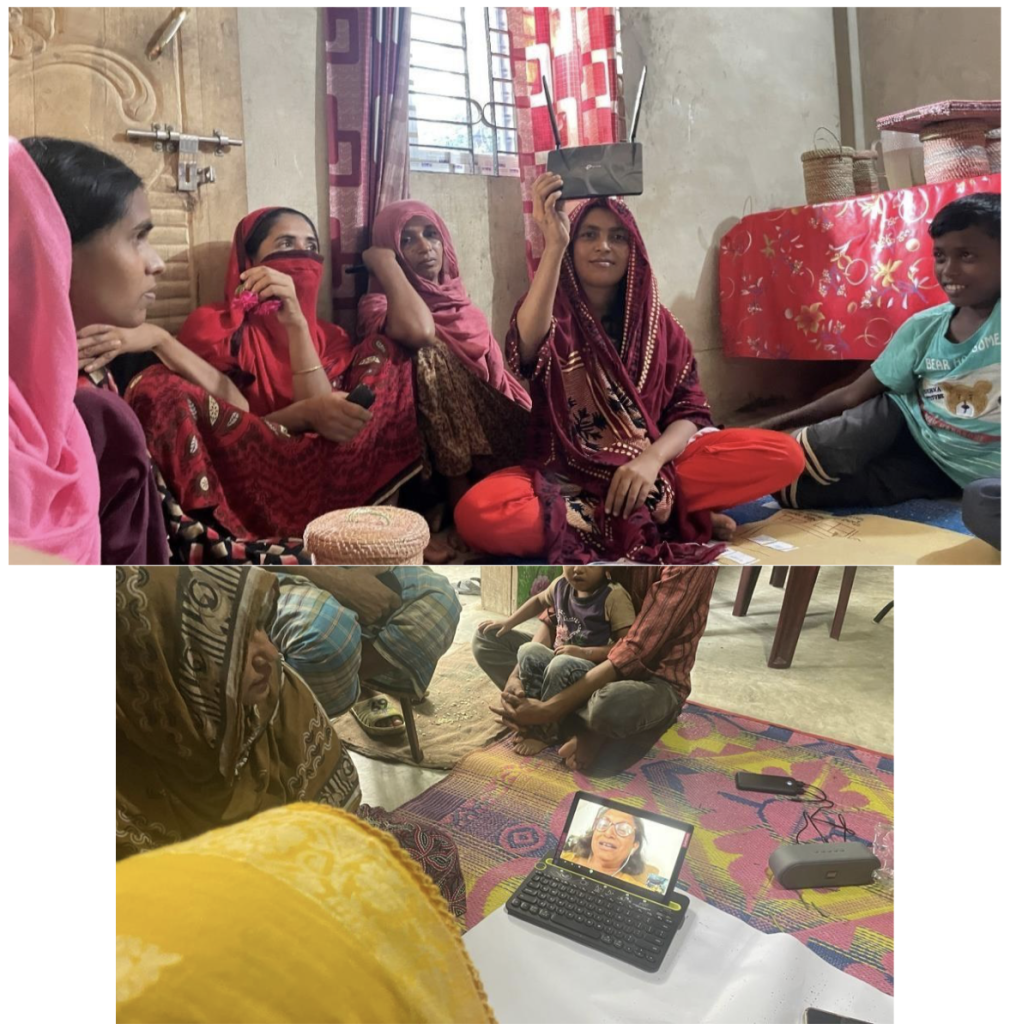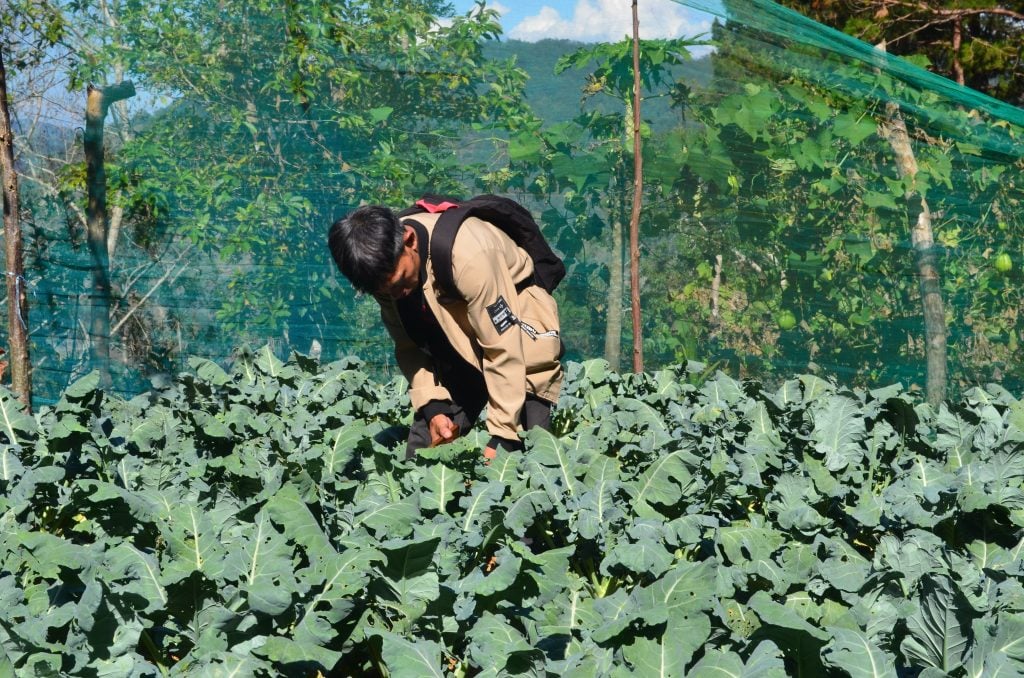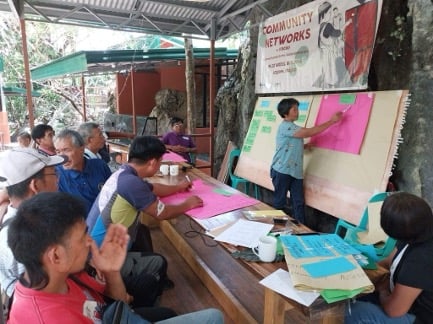Foundation Projects
Model building of community networks linked to social enterprise and sustainable local economic development
Institute for Social Entrepreneurship in Asia (ISEA)
The project led by the Institute for Social Entrepreneurship in Asia (ISEA) aims to develop models of community networks linked to social enterprise and sustainable local economic development and explore how these models respond to the challenge of sustainability of community networks. Four evolving models were developed:
The Foundation for Architecture and Community Equity (FACE) implemented a community network project in Cox's Bazar, Bangladesh, connecting three communities (Sonarpara, Telipara, Hatirghona) of women artisans to the internet through cellular router systems. Over 100 women artisans were mobilized to become suppliers for Prokritee, a Fair-Trade organization. The project provided Internet connectivity and training, enabling the women to communicate with product designers, quality checkers, and marketing channels. The communities formed cooperatives with their own governance structures and showed strong ownership by contributing resources and managing their Internet packages. The impact has been significant - Shonarpara's monthly income increased from USD $275.81 to $1,646.95, while Hatirghona's rose from USD $11.01 to $195, demonstrating how connectivity enhanced their craft enterprise's productivity and market access.

Sources for Action (SFA) developed "The Origin of Food Talks," a virtual platform and WeChat-based mobile application in Queniao and Meide villages of Guizhou Province. Unlike other projects, internet access was not a challenge in China, so SFA focused on creating a knowledge-sharing platform to document and showcase local agricultural practices, cultural traditions, and sustainable farming methods. The platform connects smallholder farmers, consumers, and youth, featuring content in various formats including text, videos, and photos. The project has engaged 30 smallholder farmers, including women and youth, and produced 17 information-education materials (5 videos and 12 photo stories) covering traditional techniques, food systems, and cultural arts. The initiative aims to preserve cultural heritage while developing sustainable economic opportunities through agro-ecological-cultural tourism.

The Philippine Rural Reconstruction Movement (PRRM) focused on improving Internet connectivity for the Kayapa Organic Producers Association (KOPA), comprising 80 members, in partnership with Vizcaya Fresh, Inc (VFI). The project designed a network architecture using three Starlink setups to enhance the organic agriculture value chain. The infrastructure aims to enable real-time sharing of production data, weather information, and marketing details between farmers and VFI, potentially reducing overhead costs and improving operational efficiency. The project emphasizes community participation and includes capacity building for digital technologies, particularly targeting the needs of organic farmers in remote areas where traditional telecom signals are weak or non-interrupted.

The Philippine Coffee Alliance, Inc (PCAI) implemented an innovative Internet of Things (IoT) system for coffee roasting machines in two community-based coffee enterprises in Kasibu, Nueva Vizcaya and Lagawe, Ifugao. The project developed a "roasting machine bookkeeper model" that generates operational data and provides automated feedback reports through GSM and cloud-based systems. This technological upgrade aims to improve the efficiency of coffee processing operations while gathering valuable data on production, quality control, and business operations. The system uses LoRaWAN technology to overcome connectivity challenges in remote areas and includes features for monitoring power consumption, roasting profiles, and operational metrics.

At the regional level, ISEA led learning events which the local country implementing partners including a two-day session on value added services featuring the experiences of Common Room (Indonesia), Net2Home (Thailand), BAIF Development Foundation (India) and other community networks from the LocNet peers of the Association of Progressive Communications in Latin America and Africa. ISEA, together with APNIC Foundation and the Association for Progressive Communications (APC), developed a hybrid session which contributed sustainability perspectives of complementary connectivity initiatives which featured Air Jaldi (India), iBoom! (Micronesia), Common Room (Indonesia), Distant Curve (Australia) and the Model Building of Community Networks linked to Social Enterprise and Local Economic Development to the Asia Pacific Regional Governance Forum (APrIGF) 2023 in Brisbane, Australia.
ISEA also implemented in November a seminar-workshop on model building of community networks which accounted the six elements integral to community network models: 1) technical dimension and community network infrastructure, 2) legal and regulatory framework, 3) organization, people, and partnerships, 4) financial dimension, 5) social impact, and 6) sustainability.
The evolving models of community networks build on the existing social enterprise initiatives enhancing productivity, incomes and efficiency in different value chains: (1) Evolving Community Network-Social Enterprise (CN-SE) model in crafts value chain-Bangladesh; (2) Evolving CN-SE model in the coffee subsector-Philippines; (3) Evolving CN-SE model in the organic vegetable value chain-Philippines and; (4) Evolving CN-SE model supporting agro-eco-cultural tourism-China. ISEA employs a monthly meeting with project partners in all the projects sites as it encourages sharing of knowledge and cross-learning between and among project partners.
The Model Building of Community Networks linked to Social Enterprise and Local Economic Development initiative, led by the Institute for Social Entrepreneurship in Asia (ISEA), demonstrates diverse approaches to using technology for social enterprise development across different Asian contexts. The projects showcase how community networks can be adapted to local needs - from enhancing artisan livelihoods in Bangladesh, preserving cultural heritage in China, supporting organic agriculture in the Philippines, to modernizing coffee processing operations. Each project emphasizes community ownership, capacity building, and sustainable business models while addressing unique local challenges. The initiative highlights how technology can be leveraged to improve productivity, market access, and income generation for marginalized communities, while building sustainable social enterprises. The success of these projects suggests that community networks, when properly integrated with social enterprise models, can contribute significantly to local economic development and community empowerment. The current initiative contributes to the goal of connecting the unconnected and bridging the digital divide.
Related


